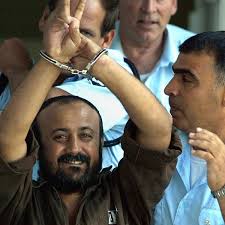The Legacy and Influence of Marwan Barghouti in Palestinian Politics

Introduction
Marwan Barghouti is a significant figure in Palestinian politics, often regarded as a symbol of resistance against Israeli occupation. His political journey, marked by imprisonment and leadership in the Fatah movement, captivates attention both in Palestine and internationally. With recent developments surrounding the Israeli-Palestinian conflict, understanding Barghouti’s role becomes increasingly relevant as the dynamics of peace and protest evolve.
Political Background
Born on June 6, 1959, in Kuwait to Palestinian parents, Barghouti returned to the West Bank in 1967. He became involved in student politics during his university years and later joined the Fatah movement, which is the leading faction within the Palestine Liberation Organization (PLO). Passionate about Palestinian rights, Barghouti was a leader during the Second Intifada (2000-2005), advocating for resistance against Israeli military actions.
Imprisonment and Continued Influence
In 2002, Barghouti was arrested by Israeli forces and sentenced to five life terms for his alleged involvement in terrorist activities. His imprisonment has not diminished his stature among Palestinians; rather, it has transformed him into a martyr-like figure admired by many. He has managed to maintain his influence through written statements and political activism, calling for unity among Palestinian factions.
Barghouti’s prominence has been highlighted in recent political discussions. His potential candidacy for Palestinian leadership, especially as the Palestinian Authority faces internal divisions and a lack of strong leadership, has garnered attention among both local and international observers. He represents a younger generation seeking change and an end to occupation.
Current Events and Future Prospects
As the Israeli-Palestinian conflict remains highly volatile, Barghouti’s views on future negotiations are crucial. He advocates for a two-state solution, concurrent with a call for non-violent resistance against Israeli settlements. His ideas resonate with numerous Palestinians disillusioned by the lack of progress in peace talks.
Conclusion
Marwan Barghouti embodies the complexities of Palestinian identity, struggle, and resilience. His ability to galvanise support from behind prison bars underscores his significance in Palestinian nationalism. As discussions about his eventual release and potential leadership role continue, Barghouti’s influence could prove pivotal in shaping the future of Palestinian politics. Understanding his contributions and the implications of his potential future role will be important for those following the evolving landscape of peace and conflict in the region.
You may also like

The Evolving Role of the Manager in Modern Business

Understanding the Current Political Landscape in the UK

The UKIP Party: Recent Developments and Future Outlook
SEARCH
LAST NEWS
- Remembering Wendy Richard: The Promise to Co-Star Natalie Cassidy
- How Did Anglian Water Achieve an ‘Essentials’ Rating for Mental Health Accessibility?
- Shai Hope Leads West Indies in T20 World Cup Clash Against South Africa
- What We Know About Weston McKennie: Future at Juventus and Past at Leeds
- What We Know About the Upcoming Live Nation Antitrust Trial